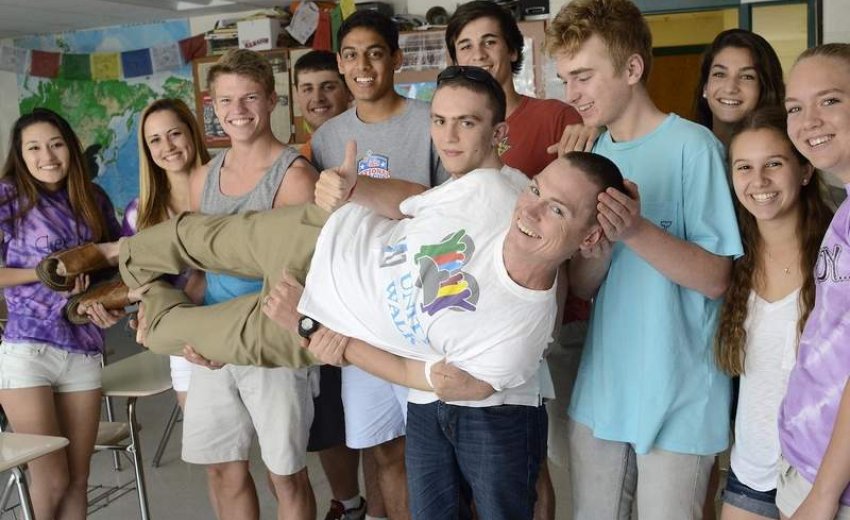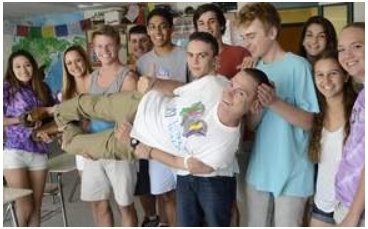‘Education can address bullying,’ educator says
|
This weekend, when the local Sikh community wanted to honor an educator for his commitment to such tolerance, it turned to Murray.
On Sunday, Murray received the Teacher of the Year Award for Excellence in Diversity Education from the Kaur Foundation at the foundation’s annual fundraiser in Potomac.
Murray teaches comparative religions, a subject that’s grown in importance since 9/11, he said. He started the elective class about six years ago and he fills two sections each semester.
“We’re fortunate at Walter Johnson,” he said. “Our social studies department is strong and we offer a lot of electives.”
Students are introduced to world religions in their core classes, Murray said, but his class gives them an opportunity to learn more.
He thinks the class is a good complement to the material presented in general social studies courses.
“It’s tough to distinguish religion from society and vice versa,” Murray said.
And especially since 9/11 it is important for students to have a solid knowledge of different religious beliefs, he said.
“Most of our kids don’t remember 9/11,” said Murray, who is 31 and was in college at the time of the attacks in New York City and on the Pentagon. “Unfortunately, anti-Islamic sentiments still exist.”
Those feelings spill over to other Eastern religions, said Mirin Phool, founder of the Kaur Foundation, which works to educate students about the Sikh religion and culture.
That’s particularly true for Sikhs, who are easily identified by the turbans the men wear.
“The foundation promotes values of a cohesive and integrated society, where the common aspirations of all young Americans are equally nurtured regardless of differences in appearance, dress, or worship,” Phool wrote in an email to The Gazette. “The Kaur Foundation was founded in 2002, in the aftermath of 9/11, when discrimination and intolerance was increasingly being directed at Sikh Americans.”
Murray said that as he was looking for resources for his class, he learned about the Kaur Foundation and the materials it has available, particularly a video called “Cultural Safari.”
“In terms of materials suitable for high school students, I think the Sikhs’ is best,” he said. “It’s really well designed, and hits on everything [including] major beliefs and misconceptions.”
The Sikh community is doing an “amazing amount” of outreach, Murray said, working into another of his tenets.
“I go for the belief that education can address [bullying],” he said.
This is the first year of the Kaur Foundation award, which is to be presented annually to a schoolteacher or administrator who demonstrates a commitment to either the development or the delivery of high-quality, cultural diversity education.
The recipient should exemplify excellence in engaging students in the cultural literacy material; demonstrate a personal ethical commitment to embracing students from all cultural backgrounds; be recognized as a leader by peers and administrators in raising awareness of the identity and traditions of diverse communities that are perceived to be outside the American mainstream actively; combat ignorance based bullying; and be knowledgeable about the Sikh identity, heritage and secular values, Phool wrote.


